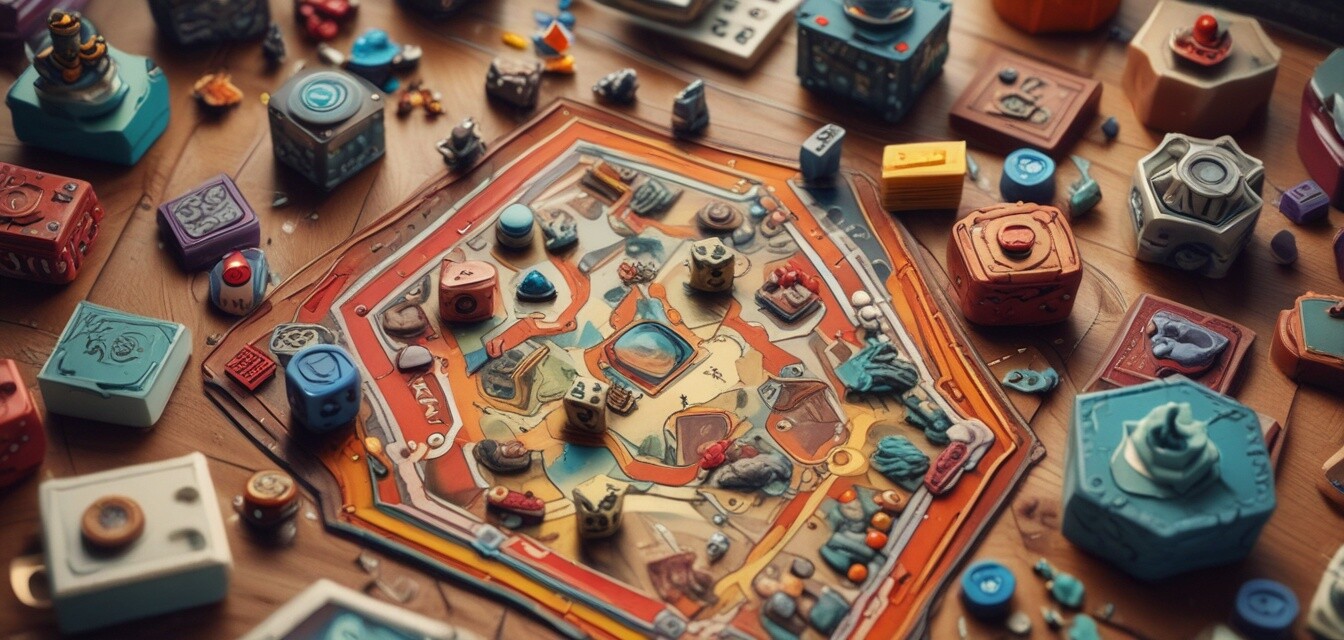
Best Family Games for All Ages
Gathering the family for a fun game night can be truly rewarding. Finding games that cater to every age group can be a challenge, but it’s essential for creating an inclusive atmosphere where everyone can enjoy themselves. This article provides a curated list of the best family games to ensure that all ages can participate and agree on what to play.
Key Takeaways
- Games for all ages foster family bonding and engagement.
- Consider game duration and complexity to accommodate everyone.
- Mix different types of games: board games, video games, and educational games.
- Have options for multiplayer games to encourage teamwork and collaboration.
- Utilize family-friendly consoles for more interactive gaming experiences.
Types of Family Games
To ensure a successful family game night, it's essential to have a good mix of game types. Below are the primary types of games that cater to families:
- Board Games: Classic games that offer hours of entertainment and strategic thinking.
- Video Games: Engaging interactive entertainment suitable for various platforms.
- Educational Games: Fun ways to learn new skills while playing.
- Outdoor Games: Great for families that enjoy physical activity and teamwork.
Best Board Games for Families
Board games are an excellent choice for creating a fun atmosphere. Here are some popular board games that appeal to diverse age groups:
| Game Name | Age Range | Player Count | Duration |
|---|---|---|---|
| Uno | 7+ | 2-10 | 30-60 minutes |
| Monopoly Junior | 5+ | 2-4 | 60 minutes |
| Jenga | 6+ | 1-4 | 30-60 minutes |
| Ticket to Ride | 8+ | 2-5 | 30-60 minutes |
Popular Video Games for Families
Video games can bring families together with exciting gameplay and cooperative challenges. Here are some suggestions:
- Mario Kart - A fun racing game that appeals to all ages.
- Overcooked! - A cooperative cooking game that requires teamwork.
- Just Dance - An energetic dance-off that can get everyone moving.
- Animal Crossing - A peaceful game that allows creativity and community building.
Educational Games to Play Together
For families looking to combine fun with learning, consider incorporating educational games:
| Game Name | Focus Area | Recommended Age |
|---|---|---|
| Scrabble | Word Skills | 8+ |
| Exploding Kittens | Math Skills | 7+ |
| Rush Hour | Logic & Problem Solving | 8+ |
| BrainBox | General Knowledge | 8+ |
Choosing the Right Game for Your Family
When picking a game, here are a few factors to consider:
- Age Appropriateness: Ensure the game is suitable for everyone’s age group.
- Playtime: Consider how much time you have; some games take longer than others.
- Complexity: Choose games that aren't too complicated to understand for younger kids.
- Interactivity: Look for multiplayer options to enhance teamwork.
Enhancing the Gaming Experience
Setting the right atmosphere can significantly enhance your family gaming experience. Here are some tips:
Tips for an unforgettable family game night:
- Set up a dedicated game area with proper seating and lighting.
- Have snacks and drinks available to keep everyone refreshed.
- Create a friendly competition by keeping score or offering small prizes.
- Rotate the choice of the game to allow everyone to have a say.
Conclusion
Finding the best family games for all ages enriches game nights and creates lasting memories. By choosing a diverse mix of board games, video games, and educational games, you can ensure that no one is left out, and everyone enjoys the fun. Don't forget to explore our section on family-friendly consoles to elevate your gaming sessions even further.
Pros
- Increases family bonding
- Suitable for various age groups
- Promotes teamwork and communication
- Encourages learning in a fun way
Cons
- Some games may require more than two players
- Complex games may frustrate younger participants
- Not all families may enjoy the same types of games